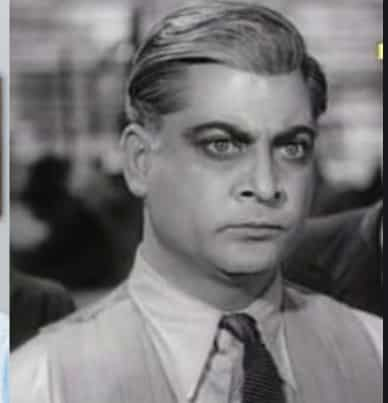As the viral infection changes its pattern, vaccination prices are on the rise and pressure is building on BMC to handle the crisis
* Eleven members of a family living near Mohammad Ali Road contract the virus.
* Brihanmumbai Municipal Corporation (BMC) sets up a ‘Death Committee’ to probe all 15 fatalities since January.
* After five neighbours are diagnosed with swine flu, 500 families of Tarangan residential complex, Thane, rush to get vaccinated.
Mumbai’s recent swine flu timeline does not look good. With 313 new cases reported in June, Mumbai has now joined the ranks of cities such as Pune and Nashik, who have been waging a battle against the viral infection since January 2017.
In April, Mumbai reported its first swine flu death — a 16-month-old from the impoverished Ambedkar Nagar in Worli. The next two casualties were also from the high-risk group: a pregnant woman and an elderly woman.
Civic officials had assured citizens that there was no cause for worry; Mumbai had an adequate stock of the drug Oseltamivir (Tami Flu) to fight the deadly flu. But once the monsoon hit the city, swine flu was everywhere — rising from low-income localities, it crept into schools and tony neighbourhoods.
New pattern emerges
“Swine flu is no longer confined to the known high-risk group of diabetics, pregnant women, children and the elderly,” says Dr Om Srivastava, an infectious diseases expert who consults at some of the most upscale hospitals in Mumbai. “There’s a change in the pattern of symptoms, too,” he says. “In many recent cases, the lungs are not affected at all, or are the last to be affected. The patient deteriorates quickly after that,” he adds.
Lethargy, vomiting and loose motions – which were not classic swine flu symptoms — are now being reported in an increasing number of patients, say private practitioners. Even as doctors in the private sector talked about the changing pattern of the viral infection, government health officials had refused to acknowledge it for a long time.
That changed when a team from the National Communicable Disease Centre (NCDC) in Delhi visited Mumbai, Thane and Pune in the last week of June. The team of experts confirmed the patterns were changing and recommended the formation of a committee that would probe all swine flu deaths in the city.
Management crisis
The sudden spike in the number of fatal cases, and steep rise in price of the vaccines has brought forth major criticism of the civic health officials. Health experts says BMC lacks planning and pulls up its socks only when the situation is out of control. “There is no disease management at all; they are merely firefighting,” says Milind Mhaske, project director at the NGO Praja Foundation. “The information is also not being put in the public domain — this despite all the funds and qualified manpower that the Mumbai corporation has.”
Corporation speaks
City health officials maintain they are equipped to deal with the viral crises. “Tami Flu is available at all government hospitals and at over 170 dispensaries,” a senior health official says. “Medical practitioners have been trained to identify symptoms, and isolation facilities are also provided at tertiary hospitals.”
While most patients will not require hospitalisation, it’s vital to isolate them to contain the infection. “Patients must keep away from public places and maintain hygiene,” the health official says, an advice most patients seem to be disregarding.
“A spike in the cases during the monsoon was expected in Mumbai and along the Konkan coast,” says Dr Pradeep Awate, the state epidemiologist. “The behaviour of the public to seek care and administration of oseltamivir on time are the two things we need to focus on,” he says.
“The Mumbai civic health officials have been told to bridge the time lag between the onset of the disease and initiation of oseltamivir is a thing of concern,” adds Awate, referring to the deaths reported in the city despite the patients visiting several medical practitioners and remaining undiagnosed .
To stabilise the situation, the state’s health minister, Dr Deepak Sawant has asked private practitioners to start patients on Tami Flu on the first day of fever and report the cases to the nearest government hospital.
A pricey prick
While health officials maintain that they have enough vaccinations, patients and their families have a different story to tell. “The government hospital in my neighbourhood did not have stock,” says Thane-resident Naval Desai. She had gone to Korus Hospital to vaccinate her five-year-old daughter against the flu, before eventually consulting a private practitioner and paying Rs 1,200 for the same vaccine. At a private chemist, the vaccine is available for Rs 450.
Another parent reported that a private practitioner said he would charge close to Rs 1,000 just to make the file for her toddler and charge extra for vaccination. As more swine flu cases are reported, vaccinations are flying off the shelf and prices, shooting up.
In Thane, all 500 families living in Tarangan Housing Society got vaccinated after five residents tested positive for swine flu. Despite the rising cost of vaccines, doctors insist that it remains one’s safest bet.
“Close to two dozen new patients with swine flu-like symptoms come in every day,” says Dr Bhupendra Avasthi, founder of Surya Hospital, a paediatric hospital in Santacruz (W). Since the test costs a minimum of Rs 5,000 in the private sector, only critical cases are sent for diagnostics. Most patients are started on Tami Flu immediately. “We cannot be sure how many of these are swine flu patients since most will never be tested,” Dr Avasthi explains.
Diagnostic
The government labs at the Haffkine Institute in Parel and Kasturba Hospital in Chinchpokli conduct the tests for free for patients from civic hospitals. The labs also undertake samples from private labs and doctors, and charge them Rs 4,500 per test.
“A government lab incurs Rs 4,000 per sample. Mumbai also has about 12 private diagnostic centres and hospitals who carry out these tests,” a senior health official says. Testing at private labs can cost between Rs 4,000 to 7,000, but reports are given within 24 hours, while government labs take longer due to the volume of samples.
 “We are seeing a four fold rise in the number of submitted samples,” says Dr Nilesh Shah, Group President, Scientific Services and Operations, Metropolis Healthcare. “Our samples are of cases with a higher suspicion of the infection, so we see more positive results,” he says.
“We are seeing a four fold rise in the number of submitted samples,” says Dr Nilesh Shah, Group President, Scientific Services and Operations, Metropolis Healthcare. “Our samples are of cases with a higher suspicion of the infection, so we see more positive results,” he says.
TERM TALK
What is swine flu?
It is a respiratory disease caused by certain strains of the influenza virus. A populated city like Mumbai is the perfect host for the H1N1 virus – humid climate, densely populated, and poor hygiene are just the things the virus needs.
Symptoms
Symptoms of swine flu in humans are similar to most influenza infections. Fever, cough, runny nose, fatigue, headache, breathing difficulties. If you suspect that you have been infected, see a doctor at the earliest. If infected the flu effects patients for three to seven days, and more serious infections last for about nine to 10 days.
Transmission
The virus is contagious about a day before symptoms develop to about five to seven days after symptoms emerge; some patients may be contagious for a longer time span. It is transmitted from inhalation or ingestion of microscopic droplets that spread from sneezing or coughing by an infected person.
Treatment
Antiviral drugs oseltamivir (Tamiflu) and zanamivir (Relenza) are often prescribed within the first day or two of symptoms to reduce the severity of symptoms, and possibly the risk of complications. Vaccination is the best way to prevent or reduce the chances of becoming infected with influenza viruses.
DIKTAT TO DOCS
The state has asked doctors to start patients on Tami Flu within 24 hours if high fever does not subside and patients show swine flu-like symptoms. Private practitioners have been asked to notify cases to the government hospitals.
COMMITTEE TO PROBE DEATHS
A committee of experts from the city’s medical colleges will probe each swine flu death to understand the lapses in the system.
PATIENTS CAUTIONED
State health minister Dr Deepak Sawant cautions patients against simply after consulting a pharmacist, and insists they see a doctor.
![submenu-img]() Meet Gautam Adani’s ‘right hand’, used to work as teacher, he’s now Rs 1600000 crore…
Meet Gautam Adani’s ‘right hand’, used to work as teacher, he’s now Rs 1600000 crore…![submenu-img]() Meet actor who worked with Amitabh Bachchan, Aishwarya Rai, entered films because of a bus conductor, is now India's..
Meet actor who worked with Amitabh Bachchan, Aishwarya Rai, entered films because of a bus conductor, is now India's..![submenu-img]() Meet Bollywood star, who was a tourist guide, married 4 times, went bankrupt, his son died by suicide, then...
Meet Bollywood star, who was a tourist guide, married 4 times, went bankrupt, his son died by suicide, then...![submenu-img]() This actor made Sharmila Tagore forget her lines, once did film for Rs 100, could never be a superstar because..
This actor made Sharmila Tagore forget her lines, once did film for Rs 100, could never be a superstar because..![submenu-img]() Volkswagen Taigun GT Line, Taigun GT Plus launched in India, price starts at Rs 14.08 lakh
Volkswagen Taigun GT Line, Taigun GT Plus launched in India, price starts at Rs 14.08 lakh![submenu-img]() DNA Verified: Is CAA an anti-Muslim law? Centre terms news report as 'misleading'
DNA Verified: Is CAA an anti-Muslim law? Centre terms news report as 'misleading'![submenu-img]() DNA Verified: Lok Sabha Elections 2024 to be held on April 19? Know truth behind viral message
DNA Verified: Lok Sabha Elections 2024 to be held on April 19? Know truth behind viral message![submenu-img]() DNA Verified: Modi govt giving students free laptops under 'One Student One Laptop' scheme? Know truth here
DNA Verified: Modi govt giving students free laptops under 'One Student One Laptop' scheme? Know truth here![submenu-img]() DNA Verified: Shah Rukh Khan denies reports of his role in release of India's naval officers from Qatar
DNA Verified: Shah Rukh Khan denies reports of his role in release of India's naval officers from Qatar![submenu-img]() DNA Verified: Is govt providing Rs 1.6 lakh benefit to girls under PM Ladli Laxmi Yojana? Know truth
DNA Verified: Is govt providing Rs 1.6 lakh benefit to girls under PM Ladli Laxmi Yojana? Know truth![submenu-img]() Remember Abhishek Sharma? Hrithik Roshan's brother from Kaho Naa Pyaar Hai has become TV star, is married to..
Remember Abhishek Sharma? Hrithik Roshan's brother from Kaho Naa Pyaar Hai has become TV star, is married to..![submenu-img]() Remember Ali Haji? Aamir Khan, Kajol's son in Fanaa, who is now director, writer; here's how charming he looks now
Remember Ali Haji? Aamir Khan, Kajol's son in Fanaa, who is now director, writer; here's how charming he looks now![submenu-img]() Remember Sana Saeed? SRK's daughter in Kuch Kuch Hota Hai, here's how she looks after 26 years, she's dating..
Remember Sana Saeed? SRK's daughter in Kuch Kuch Hota Hai, here's how she looks after 26 years, she's dating..![submenu-img]() In pics: Rajinikanth, Kamal Haasan, Mani Ratnam, Suriya attend S Shankar's daughter Aishwarya's star-studded wedding
In pics: Rajinikanth, Kamal Haasan, Mani Ratnam, Suriya attend S Shankar's daughter Aishwarya's star-studded wedding![submenu-img]() In pics: Sanya Malhotra attends opening of school for neurodivergent individuals to mark World Autism Month
In pics: Sanya Malhotra attends opening of school for neurodivergent individuals to mark World Autism Month![submenu-img]() DNA Explainer: What is cloud seeding which is blamed for wreaking havoc in Dubai?
DNA Explainer: What is cloud seeding which is blamed for wreaking havoc in Dubai?![submenu-img]() DNA Explainer: What is Israel's Arrow-3 defence system used to intercept Iran's missile attack?
DNA Explainer: What is Israel's Arrow-3 defence system used to intercept Iran's missile attack?![submenu-img]() DNA Explainer: How Iranian projectiles failed to breach iron-clad Israeli air defence
DNA Explainer: How Iranian projectiles failed to breach iron-clad Israeli air defence![submenu-img]() DNA Explainer: What is India's stand amid Iran-Israel conflict?
DNA Explainer: What is India's stand amid Iran-Israel conflict?![submenu-img]() DNA Explainer: Why Iran attacked Israel with hundreds of drones, missiles
DNA Explainer: Why Iran attacked Israel with hundreds of drones, missiles![submenu-img]() Meet actor who worked with Amitabh Bachchan, Aishwarya Rai, entered films because of a bus conductor, is now India's..
Meet actor who worked with Amitabh Bachchan, Aishwarya Rai, entered films because of a bus conductor, is now India's..![submenu-img]() Meet Bollywood star, who was a tourist guide, married 4 times, went bankrupt, his son died by suicide, then...
Meet Bollywood star, who was a tourist guide, married 4 times, went bankrupt, his son died by suicide, then...![submenu-img]() This actor made Sharmila Tagore forget her lines, once did film for Rs 100, could never be a superstar because..
This actor made Sharmila Tagore forget her lines, once did film for Rs 100, could never be a superstar because..![submenu-img]() Mumtaz urges to lift ban on Pakistani artistes in Bollywood: ‘Woh log hum logon se...'
Mumtaz urges to lift ban on Pakistani artistes in Bollywood: ‘Woh log hum logon se...'![submenu-img]() Not Kiara Advani, but this actress was first choice opposite Shahid Kapoor in Kabir Singh, she rejected because...
Not Kiara Advani, but this actress was first choice opposite Shahid Kapoor in Kabir Singh, she rejected because...![submenu-img]() IPL 2024: Yashasvi Jaiswal, Sandeep Sharma guide Rajasthan Royals to 9-wicket win over Mumbai Indians
IPL 2024: Yashasvi Jaiswal, Sandeep Sharma guide Rajasthan Royals to 9-wicket win over Mumbai Indians![submenu-img]() IPL 2024: How can RCB still qualify for playoffs after 1-run loss against KKR?
IPL 2024: How can RCB still qualify for playoffs after 1-run loss against KKR?![submenu-img]() CSK vs LSG, IPL 2024: Predicted playing XI, live streaming details, weather and pitch report
CSK vs LSG, IPL 2024: Predicted playing XI, live streaming details, weather and pitch report![submenu-img]() RR vs MI: Yuzvendra Chahal scripts history, becomes first bowler to achieve this massive milestone in IPL
RR vs MI: Yuzvendra Chahal scripts history, becomes first bowler to achieve this massive milestone in IPL![submenu-img]() 'Yeh toh second tier ki bhi team nhi': Ramiz Raja slams Babar Azam and co. after 3rd T20I loss vs New Zealand
'Yeh toh second tier ki bhi team nhi': Ramiz Raja slams Babar Azam and co. after 3rd T20I loss vs New Zealand![submenu-img]() Mukesh Ambani's son Anant Ambani likely to get married to Radhika Merchant in July at…
Mukesh Ambani's son Anant Ambani likely to get married to Radhika Merchant in July at…![submenu-img]() India's most expensive wedding costs more than weddings of Isha Ambani, Akash Ambani, total money spent was...
India's most expensive wedding costs more than weddings of Isha Ambani, Akash Ambani, total money spent was...![submenu-img]() Meet Indian genius who lost his father at 12, studied at Cambridge, took Rs 1 salary, he is called 'architect of...'
Meet Indian genius who lost his father at 12, studied at Cambridge, took Rs 1 salary, he is called 'architect of...'![submenu-img]() Earth Day 2024: Google Doodle features aerial photos of planet's natural beauty, biodiversity
Earth Day 2024: Google Doodle features aerial photos of planet's natural beauty, biodiversity![submenu-img]() Meet India's first billionaire, much richer than Mukesh Ambani, Adani, Ratan Tata, but was called miser due to...
Meet India's first billionaire, much richer than Mukesh Ambani, Adani, Ratan Tata, but was called miser due to...






































)
) “We are seeing a four fold rise in the number of submitted samples,” says Dr Nilesh Shah, Group President, Scientific Services and Operations, Metropolis Healthcare. “Our samples are of cases with a higher suspicion of the infection, so we see more positive results,” he says.
“We are seeing a four fold rise in the number of submitted samples,” says Dr Nilesh Shah, Group President, Scientific Services and Operations, Metropolis Healthcare. “Our samples are of cases with a higher suspicion of the infection, so we see more positive results,” he says.



)
)
)
)
)
)